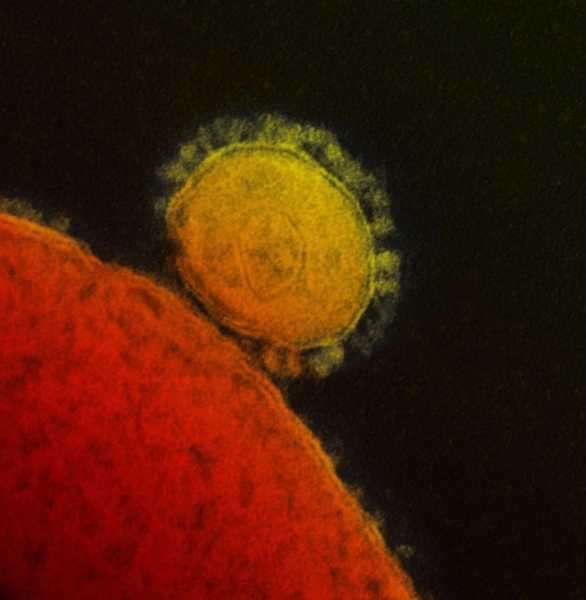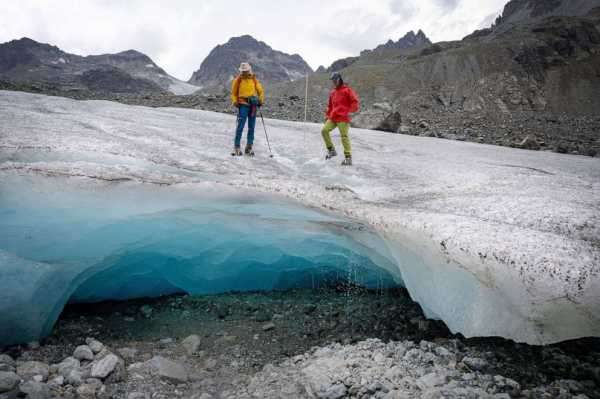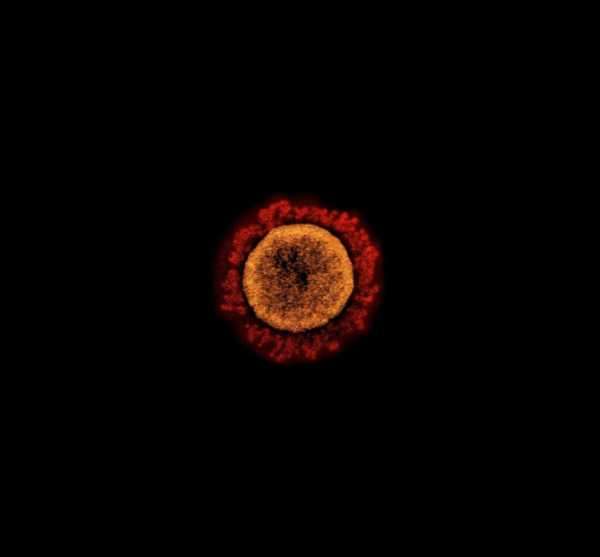In a new study published in the journal Nature Climate Change, researchers found that climate change is expected to aggravate 58% of the world’s infectious diseases.
“The societal disruption caused by pathogenic diseases, as clearly revealed by the COVID-19 pandemic,” the authors wrote in the study published Monday, “provides worrisome glimpses into the potential consequences of looming health crises driven by climate change.”
MORE: Climate change could aggravate over half of known human pathogens, scientists say
Dr. Aaron Bernstein, director of the Climate MD program at the Center for Climate, Health, and the Global Environment at Harvard University’s Chan School of Public Health, sat down with ABC News’ “Start Here” podcast to discuss the study’s findings, as well as its far-reaching implications.
START HERE: Dr. Bernstein can you just explain to me what this study found? How does climate change relate to something like COVID or monkeypox?
BERNSTEIN: Great question, Brad, and thanks so much for having me. Climate change matters to pretty much every infection you can imagine that we already know about. But it's also true that it matters to things that we have never yet seen, like COVID-19 prior to 2019. And that's because we know that diseases that are surprises like COVID, or HIV when it first appeared, because usually a virus moves from an animal into a person.

Coronavirus.Callista Images/Getty Images
Well, how does that happen? Well, people obviously have to bump into animals, but also animals bumping into other animals. And what climate change does is it makes everything that can head for the hills or the poles get out of the heat. It's like a big game of bumper cars. So there's animals that have never touched each other, running into each other, trying to get out of the heat.
So there's really two issues here. One is how the more intense heat events, the changes in how rain happens with climate change, affect diseases we know. And then there's how this bumper car problem might affect new things appearing in ways that we don't really want to see and have been seeing an unfair share of lately.
START HERE: I'm trying to get a sense of what pathogens this would affect. The study says it will aggravate, I think they said, 58 percent [of the world's infectious diseases]. Are you saying that more than half of the viruses on Earth are basically going to get worse because of this in the coming years?
MORE: Record-breaking heat waves in US and Europe prove climate change is already here, experts say
BERNSTEIN: They looked at all pathogens, it wasn't just viruses. I mentioned viruses because they're the ones that tend to be the ugly surprises, like COVID-19 or HIV. But they looked at bacteria, they looked at fungi. And again, what they wanted to answer was does climate change look like it's going to be overall worse for the infections we know about or overall better?
There are certainly some diseases, and malaria is a good [example]. Malaria has been in west Africa forever. It's been there so long that the human genome has evolved to cope with the parasites, in the form of sickle cell disease. Many people will know about sickle cell disease, it's a disease where your red blood cells, [in] a reaction, look like a sickle.

Glaciologists Andrea Fischer (L) and Violeta Lauria from the Austrian Academy of Sciences walk on the Jamtal Glacier (Jamtalferner) near Galtuer, Tyrol, Austria on July 20, 2022.Kerstin Joensson/AFP via Getty Images
Well, if you have two copies of that gene that are defective, you get sickle cell disease. But if you have one copy, you're actually protected from malaria. That's how much malaria has been in the population of West Africa, it's been there that long. That's actually selected for, that gene to protect people from malaria. But it's going to get so warm in west Africa in this century, we expect that malaria is actually going to decrease in incidence because it's too hot for the mosquitoes.
So there are some diseases like that where we think that climate change is probably going to make them, at least in local situations, less likely. But on balance, what they found is that the majority of things we know are likely to get worse because it's going to get wetter. Heavy downpours of rain are a major risk for outbreaks of waterborne diseases, particularly for people who get water from wells, which is almost all of the rural U.S.
In a lot of the rest of the world, heat in particular isn't just an issue for animals bumping into each other and viruses going over, it affects where things like mosquitoes and ticks that transmit disease live. So here in New England, we have the most prevalent insect-transmitted disease in the country, which is Lyme disease. We've definitely seen that disease able to live in places it couldn't [before] because it's warm enough for the tick to survive.
MORE: Biden announces executive actions on climate change that fall short of what activists want
START HERE: And there's a shorter winter to kill the thing.
BERNSTEIN: Exactly.
START HERE: So are there solutions here or is the answer just to make the Earth less hot, spend more time indoors, away from nature? Like what would you recommend people do?
BERNSTEIN: Okay, Brad, so this is like the $10 trillion question, right? So we literally face an enormous fork in the road here. We can either sit on our hands and play fire brigade, meaning let's wait for all this stuff to happen that we can see coming. We've already seen it and tried to play catch up. Right?
So whether it's monkeypox, which is also a disease that goes from animals to people or you know, we've already been through COVID, there's a total possibility we could have another coronavirus first. We can wait for these things to appear and then hope upon hope that we can contain them, but I would argue we can do better.

Transmission electron micrograph of a SARS-CoV-2 virus particle (UK B.1.1.7 variant), isolated from a patient sample and cultivated in cell culture.BSIP/Universal Images Group via Getty Images
We can actually stop these things before they start. The coronavirus vaccine, which was great at the start and is still really important, is imperfect at best and it's only good for this one coronavirus. And yet we know there are thousands of coronaviruses. So if we protected bat habitats and kept people safe from bats, we wouldn't have to worry about making a thousand vaccines.
Poor countries are the ones who are least likely to get access to those things first, where these diseases often erupt. And so there's all these components of equity to really try to address spillover at its source rather than the fire brigade approach. There's no question in my mind that we're always going to need vaccines, tests and drugs; we're never going to prevent all diseases from emerging, but we shouldn't do that in isolation. It would be like trying to deal with climate change only by building seawalls and cooling centers and not dealing with the fossil fuels that drive it.
START HERE: Really interesting. All right. That is Dr. Aaron Bernstein from Harvard's Chan School of Public Health Leading the C-Change Program. Thank you so much.
BERNSTEIN: Thank you, Brad.
Sourse: abcnews.go.com






